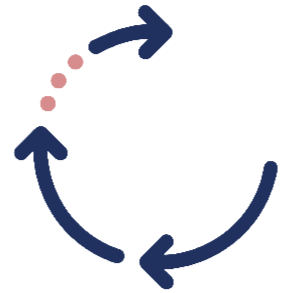Complex problems don’t come with instruction manuals.
Whether in global development, public policy, or organisational transformation, the path to real change is rarely linear. Too many promising initiatives fail, not because the ideas aren't good, but because they ignore how change actually happens in complex systems.
At Ripple Colab, we've developed a distinctive approach that bridges this gap.
The Actor-Based Change Framework
At the heart of our work is the Actor-Based Change (ABC) Framework, a pragmatic methodology our Founder Mark Oldenbeuving co-created while at Palladium and published in the American Journal of Evaluation.
Unlike traditional approaches that focus on activities and outputs, we focus on the people whose behaviours and relationships drive systems.
The framework recognises a simple truth: systems don't change, people do. And when people change, the ripples spread.
How We Blend Methods for Impact
We don't believe in one-size-fits-all solutions. Instead, we blend proven methodologies at each stage of the work:
To understand complexity,
we combine:
Systems mapping to visualise relationships and feedback loops
Political economy analysis to decode power dynamics and incentives
Behavioural models to identify what really drives
To design interventions,
we integrate:
Human-centred design to see challenges through the eyes of those living them
Participatory approaches to co-create solutions with those who'll implement and benefit from them
Actor-based theory of change development to connect today's actions with tomorrow's outcomes
To enable learning and adaptation,
we deploy:
Contribution analysis to understand what's working and why
Developmental evaluation to learn in real-time as contexts shift
Adaptive management to pivot based on evidence, not assumptions




